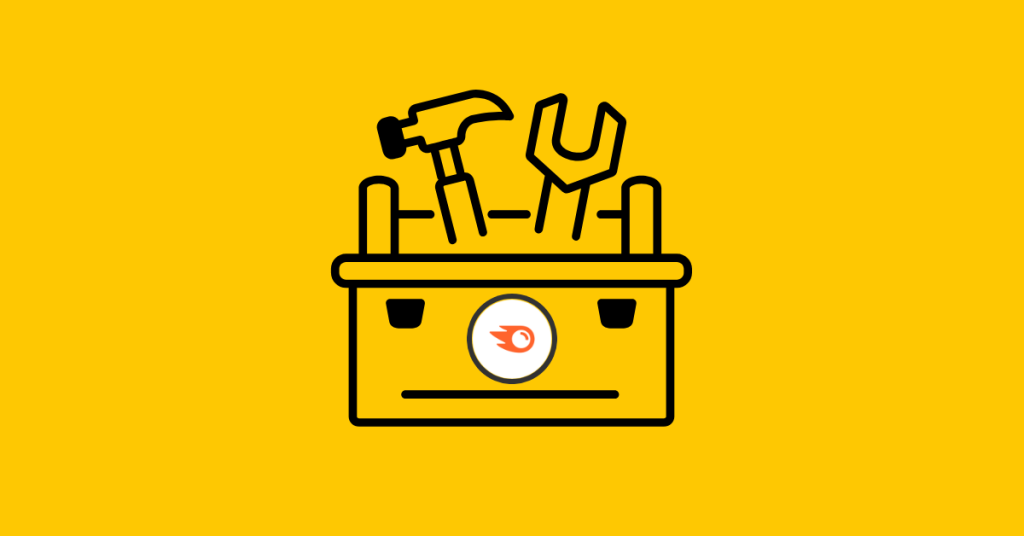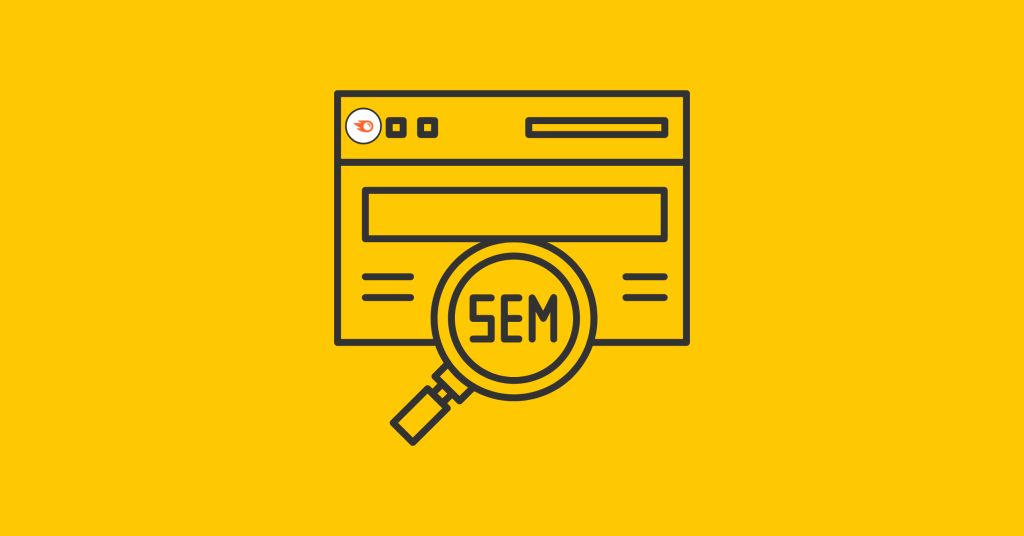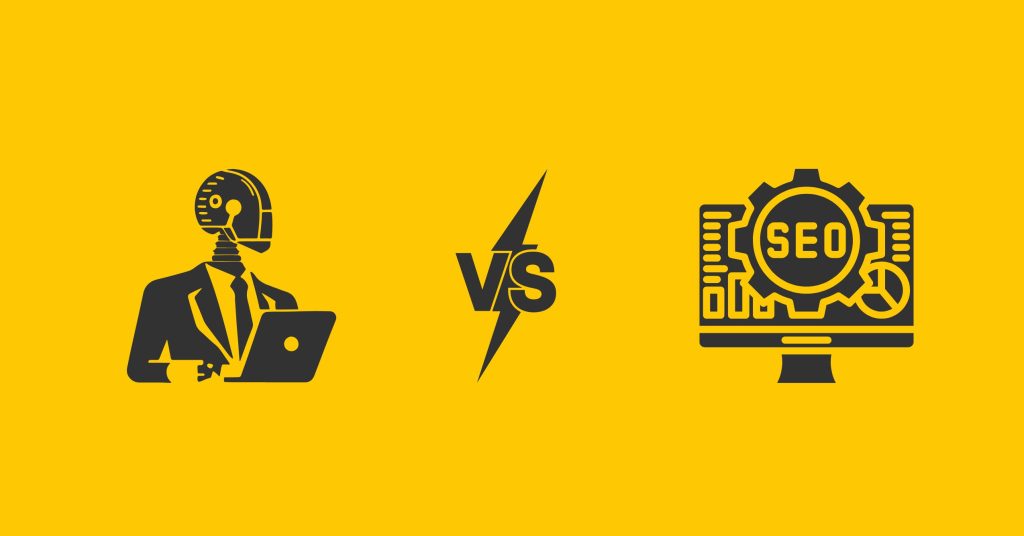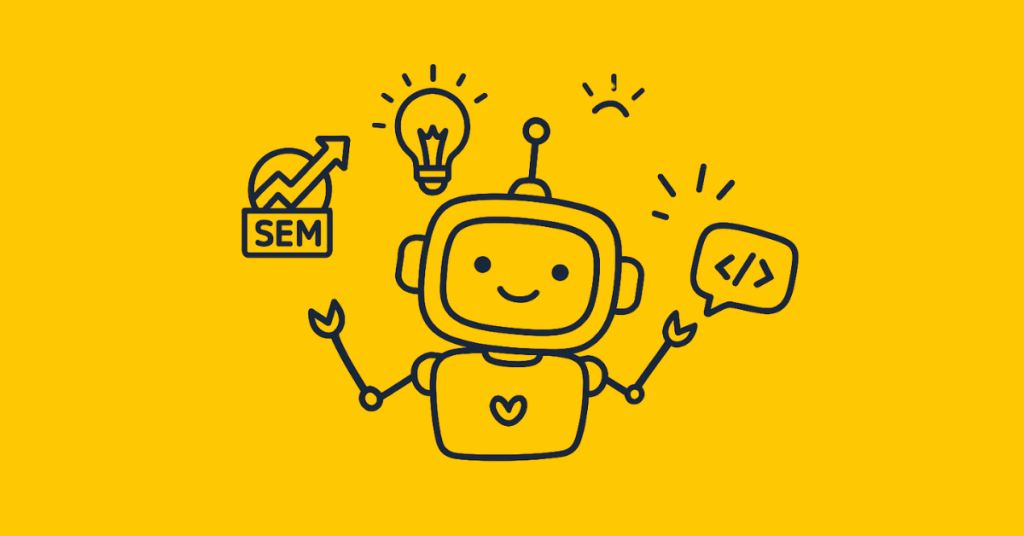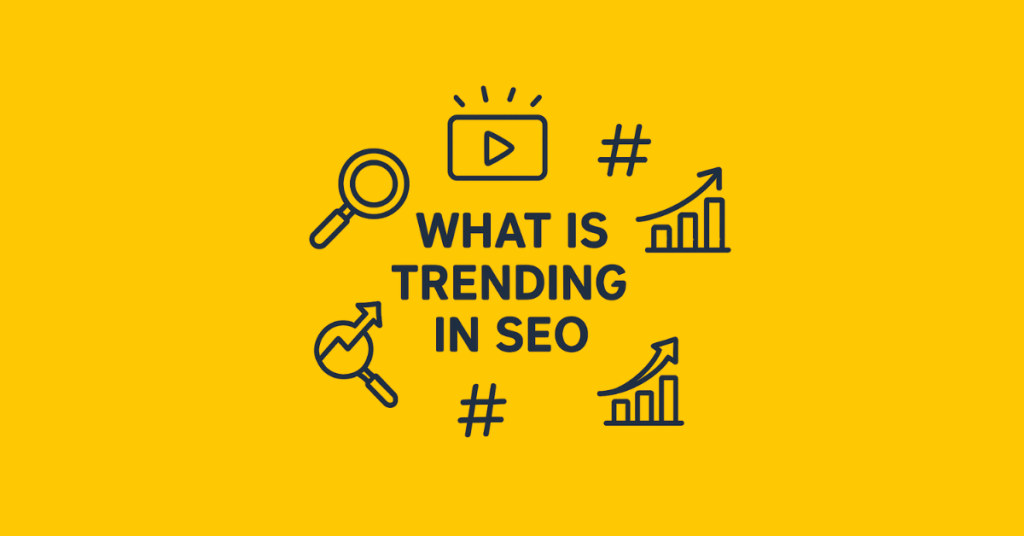SEO professionals spend an average of 20+ hours weekly on repetitive tasks like keyword research, content optimization, and technical audits. With the introduction of AI SEO agents, this time can be reduced massively!
These new AI-powered assistants are designed to streamline and enhance search engine optimization efforts with minimal human intervention.
These SEO AI agents represent the next evolution in search optimization technology and leverage advanced machine learning algorithms to automate complex SEO tasks that previously required extensive manual effort.
This article explores how AI SEO agents work, their capabilities, limitations, and what I think about this rapidly advancing technology that is reshaping digital marketing.
What Exactly is an AI SEO Agent?
An AI SEO agent is an autonomous AI-powered assistant specifically designed to handle multiple search engine optimization tasks with minimal human intervention.
These agents streamline SEO strategies by automating specific activities like keyword research, content optimization, and technical SEO audits.

At their core, AI SEO agents are powered by sophisticated technologies:
- Natural Language Processing (NLP): Enables understanding of search intent and semantic relationships between terms.
- Machine Learning: Allows the agent to improve performance over time based on outcomes.
- Large Language Models: Provide the foundation for content analysis and generation capabilities.
- API Integrations: Connects to data sources like Google Analytics, Search Console, and competitor analysis tools.
Unlike traditional SEO tools that automate specific isolated tasks, AI SEO agents can conduct complete SEO processes with increasingly less human guidance. They compile large amounts of data from various sources to deliver practical insights.
For example, when tasked with creating content for a target keyword, an agent can independently research, analyze SERPs, create outlines, identify relevant subtopics, and even generate optimized content drafts.
Example: With a new Semrush Pro plan subscription, you get the Semrush AI assistant as an AI SEO agent. You can now get an SEO expert who can analyze competitor performance, do keyword research, and provide action plans.
SEO vs GEO
While SEO (Search Engine Optimization) focuses on optimizing content for traditional search engines like Google, GEO (Generative Engine Optimization) represents optimization for AI-driven systems like ChatGPT or AI Overviews.
The new way to “SEO” calls for optimizing your content as per the AI search engines like the Google AI overview, ChatGPT, or even Perplexity. As the user’s choices shift, so should your optimization efforts.
This shift requires understanding how AI agents process information differently than conventional search algorithms, including context comprehension, intent recognition, and multi-modal information processing, creating an entirely new frontier for digital marketers.
Pros and Cons Of An AI SEO Agent
AI SEO agents offer significant advantages but come with important limitations:
Pros:
- Automates time-consuming repetitive SEO tasks efficiently
- Analyzes vast datasets faster than humans
- Adapts quickly to algorithm changes
- Provides data-driven insights without bias
- Scale efforts across multiple sites/campaigns simultaneously
Cons:
- Current error rates remain relatively high
- Lacks human critical thinking and creativity
- May implement recommendations without proper context
As highlighted in industry research, the technology is still developing, with some platforms reporting error rates between 15-30%. This makes human oversight essential to ensure quality and prevent potentially harmful implementations.
How Is an AI SEO Agent Different From a Chatbot?
AI SEO agents and chatbots may seem similar at first glance, but they serve fundamentally different purposes in the digital landscape.
| Feature | AI SEO Agent | AI Chatbot |
|---|---|---|
| Primary Purpose | Autonomously execute SEO tasks | Engage in conversation, answer questions |
| Specialization | Built specifically for SEO processes | General conversational assistance |
| Data Access | Can access website traffic and performance data | Limited to training data and given context |
| Action Capability | Can implement changes and run analyses | Primarily provides information or suggestions |
| Workflow Integration | Works within SEO tools ecosystem | Typically standalone conversation interface |
While AI chatbots like ChatGPT can assist with certain SEO aspects, such as keyword research, sitemaps, and content outlines, they aren’t specialized SEO tools.
They primarily focus on user engagement and cannot conduct complex tasks like accessing website traffic data to perform analyses.
For example, when asked to analyze ChatGPT, a strategy to target a keyword, it can only compile information from other articles discussing the website’s SEO success.
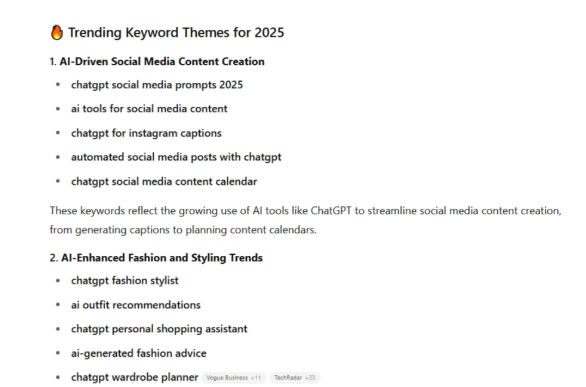
It cannot access real-time data or perform independent analysis. In contrast, specialized AI SEO agents can leverage actual data to run thorough website analyses and draw data-driven conclusions, performing SEO tasks independently rather than just discussing them.
Note: At the present stage, as the AI SEO agents are evolving, I’ve noticed their response times to be much slower than a chatbot.
Key Capabilities and Benefits of Using an AI SEO Agent
AI SEO agents bring automation and intelligence to search optimization workflows, transforming how professionals approach both routine tasks and complex strategy development.
Automated Keyword Research and Analysis
AI SEO agents excel at automating keyword research processes by measuring data points like search volume and ranking difficulty. They analyze vast amounts of information to identify high-value keywords and organize them into meaningful clusters.
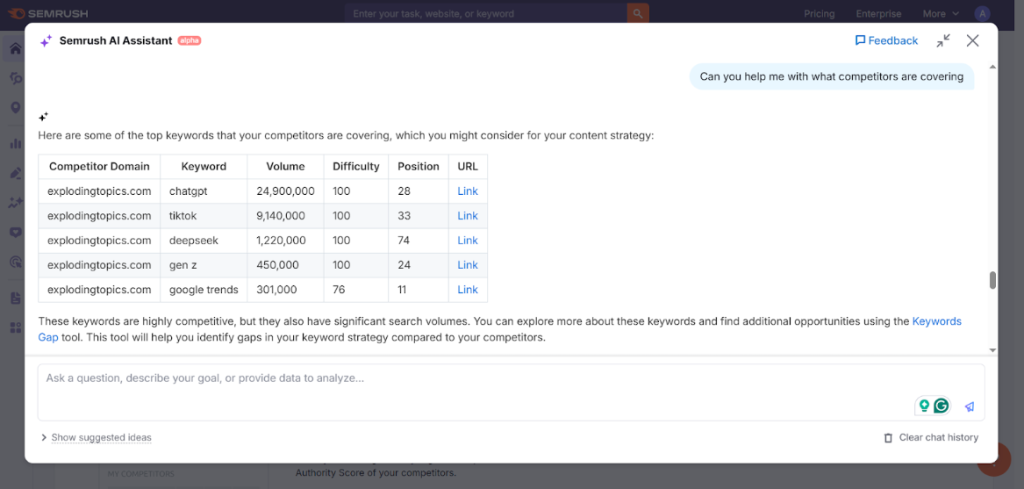
Advanced agents can not only identify current valuable terms but also predict trending keywords before they peak, giving users a competitive advantage in capturing emerging traffic.
Content Optimization and Generation Assistance
Using Natural Language Processing, AI agents can analyze content and offer specific improvement suggestions for better search engine rankings.
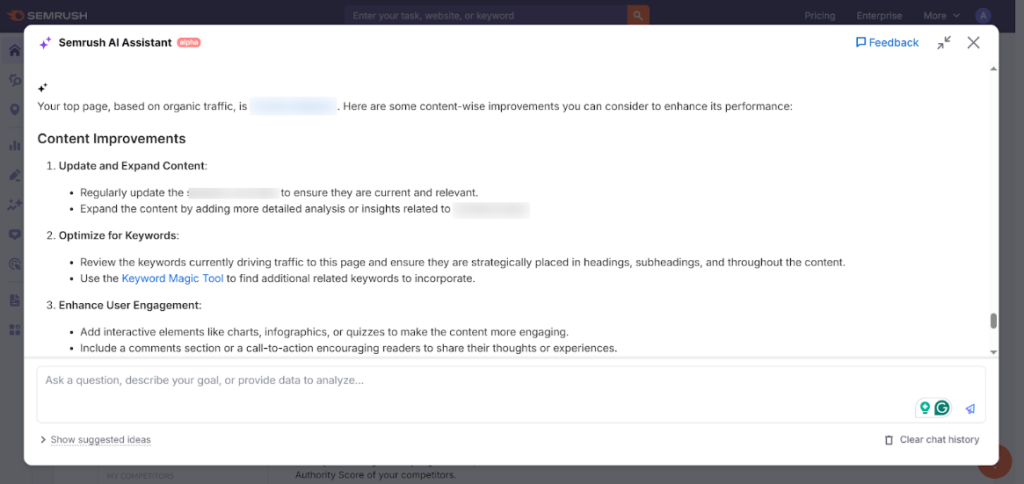
They can identify optimization opportunities like keyword placement, readability issues, and content structure problems.
The most advanced systems can generate content outlines based on SERP analysis, suggesting topics to cover, questions to answer, and even optimal content length to match top-performing pages.
Technical SEO Audits and Recommendations
AI agents can crawl through websites to identify and fix usability and indexing-related issues.
For example, they might find website loading speed problems and suggest specific fixes like minifying stylesheets or converting images to more efficient formats.
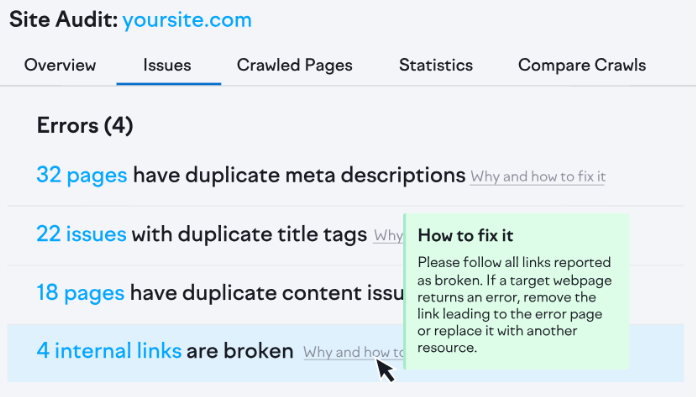
Some platforms can even implement technical fixes autonomously, though human verification remains important to prevent unintended consequences.
Link Building and Outreach Support
AI agents are valuable for discovering link-building opportunities by monitoring competitor backlinks and finding resources targeting your main keywords.
They can identify blog posts and community forums discussing relevant subjects, then generate outreach suggestions. This significantly reduces the time-consuming research phase of link-building campaigns.
SERP Analysis and Competitive Intelligence
AI SEO agents can analyze massive amounts of search engine data and transform it into actionable insights.
They can identify user intent patterns, categorize top-ranking pages, analyze related semantic terms, and spot patterns across search results. This enables SEO professionals to understand what’s working in their niche and optimize their content accordingly.
Top 3 AI SEO Agents Right Now
As the AI SEO agent landscape rapidly evolves, several platforms have emerged as frontrunners by offering increasingly autonomous capabilities with practical applications.
1. Semrush AI Assistant
The new Semrush tool leverages Semrush’s robust database to provide advanced keyword recommendations, SERP analysis, and content optimization guidance while integrating seamlessly with other Semrush tools for comprehensive SEO campaigns.
2. KIVA:
This stands out for its comprehensive content planning capabilities, automating the ideation process from keyword research to generating SEO-optimized outlines with minimal human input.
Link: Here
3. Alli AI
This AI SEO Agent excels in technical SEO, autonomously identifying website performance issues and implementing fixes like minifying code and optimizing images. It can also automatically generate Schema markups and handle canonical issues.
Link: Here
Considerations When Choosing an AI SEO Agent
When evaluating AI SEO agents, several critical factors should influence your decision beyond just feature lists:
1. Specific Needs and Goals
Identify your primary SEO challenges first—whether technical SEO, content optimization, or competitive analysis—and select an agent specialized in those areas.
2. Integration with Existing Tools
Ensure the AI agent integrates seamlessly with your current marketing stack, including analytics platforms, content management systems, and other SEO tools.
3. Ease of Use and Implementation
Some AI agents require programming experience, while others offer user-friendly interfaces. Tools like AgentGPT represent efforts to make agent technology accessible to non-technical users.
4. Data Privacy and Security
Understand how the AI agent handles your website and customer data, especially regarding third-party access and compliance with privacy regulations.
5. Cost and ROI
Consider that continuous chains of prompts could lead to high bills with some AI platforms because every prompt consumes tokens or processing resources. Evaluate potential return against both direct costs and time saved.
The Future of SEO with AI Agents
The SEO profession is entering a revolutionary phase with AI agents transforming how we approach optimization. Soon, these tools will autonomously monitor performance, detect algorithm changes in real-time, and implement adjustments without constant oversight.
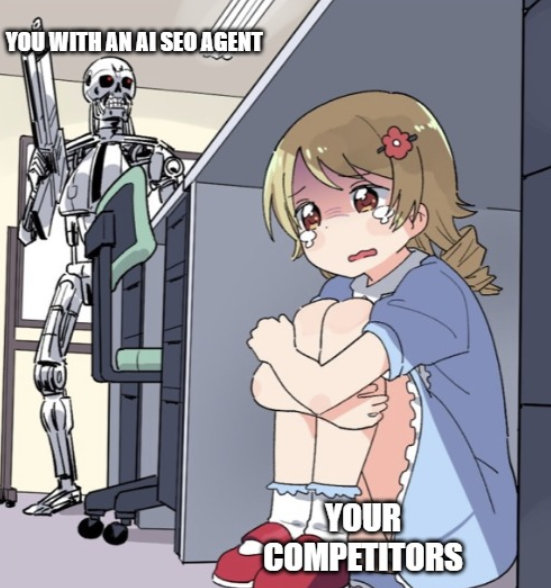
Professionals embracing AI agents today will gain significant competitive advantages as they’ll develop expertise in orchestrating these systems while competitors still struggle with manual processes.
Our role is evolving from tactical implementation to strategic orchestration, focusing on the uniquely human abilities that AI still lacks.
Conclusion: AI SEO Agents Are Here To Change The Game
AI SEO agents revolutionize search optimization by automating tasks, offering data-driven insights, and adapting to algorithm changes. They boost efficiency but still require human expertise for strategy, creativity, and ethics.
The most successful marketers will embrace AI as collaborators, not threats. As search and user behavior evolve, AI integration will become essential for competitiveness.
The key question isn’t whether to adopt AI but how to leverage it effectively for your goals. Combining AI’s precision with human insight ensures optimal SEO performance in an increasingly complex digital landscape.
FAQs
The required technical expertise varies significantly between platforms. Some agents require programming experience, while others offer user-friendly interfaces designed for marketers without technical backgrounds.
No, AI SEO agents are best viewed as collaborative tools rather than replacements. They excel at data processing, pattern recognition, and task automation, but human expertise remains essential for strategy, creativity, and understanding nuanced business contexts.
Accuracy varies by platform and task type. Current error rates for some agents range from 15-30%, highlighting the importance of human oversight. Always review and validate AI recommendations before implementation.
Pricing models include subscription plans, pay-per-use (based on tokens or processing time), and enterprise agreements. Consider both direct costs and potential ROI through time savings and improved results when evaluating options.
Advanced agents continuously monitor search performance data and can detect algorithm changes through pattern analysis. The best platforms update their models regularly based on both explicit algorithm announcements and observed ranking behavior changes.
Rather than replacement, we’re seeing convergence. Optimizing for both traditional search engines and AI agents will become increasingly important as users adopt multiple search interfaces. The foundational principles of providing valuable, relevant content remain consistent across both approaches.


